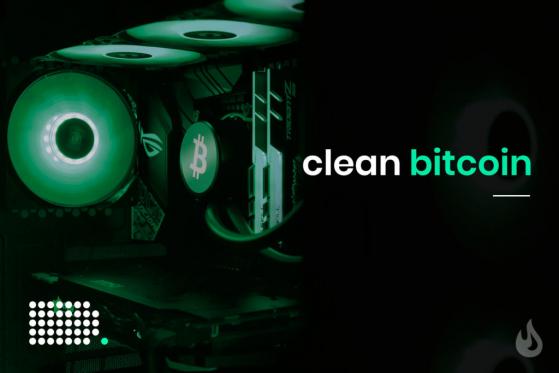Cryptocurrencies have always been controversial. Some people argue about whether they should be valuable. Others debate their morality and how they’re excellent for criminal operations. Finally, even experts weigh up whether they’ll crash or not.
That brings us to clean Bitcoin. You might think the “clean” in its name refers to being legitimate—not coming from criminal activity. However, it’s related to Bitcoin’s mining operations and their energy consumption.
Are you interested in acquiring clean Bitcoin? Do you care about the environment and want to do something about it? That’s what you’ll learn about today.
What Is Clean Bitcoin?
Many argue that Bitcoin is better than fiat money for the environment. After all, it’s entirely digital, so printing paper and dealing with residue are not problems. However, the reality is more complex than that argument suggests.
Mining Bitcoin—which is how people generate new coins—requires considerable electrical power. This consumption has led to doubts about Bitcoin’s environmental implications.
Clean Bitcoin refers to Bitcoin mined using sustainable methods: solar power, hydroelectricity, and anything not relying on coal and similar fuels.
What Do Experts Think About Clean Bitcoin?
Kevin O’Leary, the famous investor, recently announced that he’d only buy clean Bitcoin. He stated that, for him, two types of Bitcoin exist: clean and blood coins. He’s focusing solely on the former.
While he didn’t mention where he acquires this type of Bitcoin, many countries produce Bitcoin via sustainable approaches.
O’Leary was once famous as a Bitcoin detractor. He’s a recent investor, and he mentioned that he plans to dedicate 3% of his portfolio to Bitcoin. Nevertheless, he won’t buy anything before learning where, when, and how it was mined.
Clean Vs. “Blood” Bitcoin
As we mentioned, clean Bitcoin comes from sustainable mining. “Blood” Bitcoin comes from harmful mining practices, which usually rely on coal for energy.
In this context, China has attracted much attention, mainly because of its insufficient environmental measures.
Cryptocurrencies And The Environment
Institutions tend to restrict certain assets depending on their compliance with environmental considerations. If Bitcoin becomes an ecological risk, it could harm investors.
These concerns have become more prominent over time. Bitcoin mined in China and countries with sanctions could become a red flag for investors, prompting them to move toward clean Bitcoin or altcoins.
Companies Starting To Aim For Clean Crypto
Argo Blockchain and DMG Blockchain Solutions have announced clean Bitcoin mining pools. The companies provide mining and blockchain solutions, respectively. Their project will use hydroelectric energy for generating Bitcoin.
It’s a joint venture that looks to answer growing concerns about Bitcoin’s carbon footprint. It’s also not the only attempt of its kind. Other companies have launched investment initiatives for clean energy usage in Bitcoin mining.
How Will It Work?
The venture is the first mining pool for Bitcoin that mandates miners to prove they’re using green energy sources for the task. From the statements, they’ll likely implement a verification method for the job.
Today, there are plenty of clean energy sources: solar, wind, hydro, nuclear, and more. It’s easier for miners to access enough power without compromising the environment.
However, most pools don’t care about which type of energy their miners use. Most of these pools are in China, prompting O’Leary’s statements about blood Bitcoin coming from the country. Terra Pool (NASDAQ:POOL), the new venture, will demand that its miners follow ecological principles.
What Does This Mean?
While most miners don’t use renewable energy for their operations, there’s a major push toward clean Bitcoin. The cryptocurrency market keeps growing and attracting new investors. According to experts, this growth calls for sustainability.
If the environment becomes a priority for most investors, most miners will need to shift toward clean Bitcoin. Non-sustainable mining could render significant mining pools unprofitable. Moving to sustainable mining could become a worthwhile long-term investment.
On The Flipside
- Finding clean Bitcoin can be a challenge for most investors. With China mining the majority of Bitcoins, clean Bitcoins can be considered rare.
- Ecological mining pools could face verification issues with their miners, primarily if they can provide false proof.
- It might take a while for sustainable energy sources to become the mining standard. Until then, clean Bitcoin prices might increase prominently.
- Similarly, demand for non-sustainable Bitcoin could plummet, disrupting trading.
